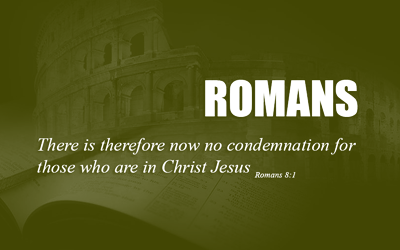Romans 4:19-24
Who do you have faith in? Righteousness based on faith. For everyone who believes.
(Bấm vào đây để đọc tiếng Việt)
WHO DO YOU HAVE FAITH IN?
 "19Without being weak in faith, he considered his own body as dead (because he was about one hundred years old) and the deadness of Sarah's womb. 20He did not waver in unbelief about the promise of God but was strengthened in faith, giving glory to God. 21He was fully convinced that what God promised he was also able to do." (Romans 4:19-21)
"19Without being weak in faith, he considered his own body as dead (because he was about one hundred years old) and the deadness of Sarah's womb. 20He did not waver in unbelief about the promise of God but was strengthened in faith, giving glory to God. 21He was fully convinced that what God promised he was also able to do." (Romans 4:19-21)
When we need to cite examples of Abraham’s faith, we think of events like those found in Hebrews 11, when he left his home to travel to a land he would later inherit, and when he offered his son Isaac as an offering to God. But we won’t think about the time he lied to King Abimelech about his wife Sarah, or when he and his wife plotted to fulfill God’s promise of offspring on their own.
If God considered his successes to be merits for declaring him righteous, He would also have to consider his failures. If circumcision is a de facto sign of legal fulfillment, Paul asserted emphatically that Abraham was declared righteous by God “before” he was circumcised, demonstrating that there is no condition attached to it other than his faith in his God alone. Abraham was only “justified freely by God’s grace” (Romans 3:24). And God not only gave Abraham this righteousness by faith, but also to “all who believe” (Romans 3:27).
4Now to the one who works, his pay is not credited due to grace but due to obligation. 5But to the one who does not work, but believes in the one who declares the ungodly righteous, his faith is credited as righteousness. (Romans 4:4-5)
Though most Christians do not explicitly state that the offering of Isaac is a requirement for righteousness, they speak of Abraham’s act as if it is. Then it becomes a work, but according to Romans 4:5, it could never make Abraham righteous. He could do it, and you can do it, but all works are meaningless in terms of salvation.
So, what kind of faith are we discussing here? Is it faith validated by the offering of Isaac, as in the case of Abraham, or faith despite it? I am convinced it is the latter. God works in Abraham’s life to bring him to the point where he offered his only son as a shadow of the Lamb of God, and he may work in our lives toward different ends, none of which will ever rival Abraham’s. And they are not required to. Because “God justifies the ungodly,” (Romans 4:5) and I am one of them.
Abraham’s righteousness is based solely on his faith in God, not on any noble acts he performed during his lifetime.
RIGHTEOUSNESS BASED ON FAITH
“22So indeed it [Abraham’s faith] was credited to him as righteousness.” (Romans 4:22)
Yes, Abraham received God’s righteousness solely through his faith, apart from his works: “to the one who does not work, but believes in the one who declares the ungodly righteous, his faith is credited as righteousness.” (Romans 4:5)
FOR EVERYONE WHO BELIEVES
“23But the statement it was credited to him was not written only for Abraham’s sake, 24but also for our sake, to whom it will be credited, those who believe in the one who raised Jesus our Lord from the dead.” (Romans 4:23-24)
Abraham is the model for how God bestows righteousness on those who believe in Him: he was justified solely on the basis of faith in God, with no works involved. Those who rely on their works for righteousness, on the other hand, run the terrible risk of falling out of grace.
You who are trying to be declared righteous by the law have been alienated from Christ; you have fallen away from grace! (Galatians 5:4)
Nghi Nguyen
- Scripture quoted by permission. All scripture quotations, unless otherwise indicated, are taken from the NET Bible® copyright ©1996-2006 by Biblical Studies Press, L.L.C. All rights reserved.
Disclaimer: This is my own opinion on the topic, which does not necessarily reflect the church's theology, or beliefs of the individuals in it — Nghi Nguyen
